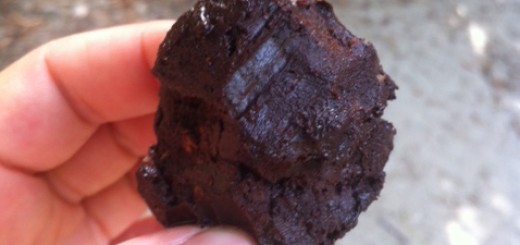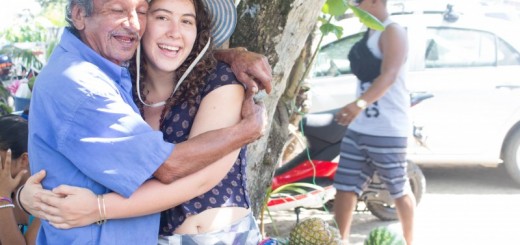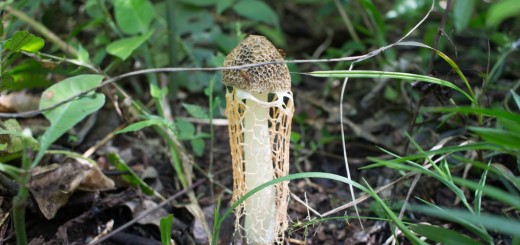Bananas in Costa Rica
Natural History
The natural history of bananas are complex, and a common understanding is that the modern day banana is created out of the plantain. There are two wild ancestors that created the modern day varieties of banana and plantain, Musa acuminata, a small plant bred to produce a seedless fruit, and Musa balbisiana, a heartier plant. According to archaeologic records, Musa acuminata has been cultivated for 6,500 years, and the oldest evidence being from New Guinea. There have been traces of banana found all over the world, and they were introduced to Africa about 2,500 years ago. The Cavendish banana is the gene most commonly imported, and commercially sold in Costa Rica.
http://www.smithsonianmag.com/arts-culture/taming-the-wild-banana-33985103/?no-ist
Cultural Studies: History of Bananas in Costa Rica
Bananas were introduced to Costa Rica in the 1890s by American entrepreneur Keith Minor. Minor was commissioned by the Costa Rican government to build a transnational railroad, where he began to grow bananas on the sides of the railroads. Minor started the first commercial banana plantation in Costa Rica in 1872, and began exporting bananas to the United States. The Costa Rican government saw success in the business, and began offering land concessions and incentives to attract foreign investors. Minor united with The Boston Fruit Company in 1890, and formerly became The United Fruit Company, which then became Chiquita Bananas. The United Fruit Company held the monopoly on banana business until the 1950s.
“In the 1950Õs, transnational companies began leasing company lands to local growers. However, local growers were not allotted much autonomy in the cultivation of the banana crops. The growers could only sell their bananas to the transnational company, who would then be responsible for transport, marketing and distribution abroad. Banana corporations maintained strict control over the growers, fixing prices and volumes. These independent contracts became win-win situations for the fruit companies: They were able to maintain profits and control, yet eliminated all risks of production (McCracken). Currently, control of the banana industry in most of Central America is maintained by U.S. fruit companies. Chiquita Brands (formerly United Fruit), Dole and Del Monte are the largest banana producers, controlling over 65% of world banana exports, combined (McCracken). Chiquita and Dole are U.S. based companies. Del Monte is owned by the Chilean-based IAT group (Banana Companies). Bananas are the fourth largest staple crop in the world. The major banana variety grown for export is the Cavendish.”
(http://jrscience.wcp.miamioh.edu/fieldcourses05/PapersCostaRicaArticles/BananaCultivationinCostaR.html)
Costa Rica is one of the top ten producers of bananas worldwide, and exports the majority of product to The United States, The European Union and Japan.
Geology and Soils
Bananas require optimal soil and conditions to be successful, and is mostly grown on the Caribbean side of Costa Rica. They require a flat terrain, well structured and well drained soil, nutrient rich soil high in potassium, and pH between 6 and 7.5. The best soils for banana production is found in alluvial plains and on a volcanic ash deposits. Bananas typically need 10-15 months of frost free conditions, and grow between 80-100 degrees F.
http://jrscience.wcp.miamioh.edu/fieldcourses05/PapersCostaRicaArticles/BananaCultivationinCostaR.html
Business
The banana business provides much employment and revenue for Costa Rica, but causes much of the deforestation, pesticides, unnecessary industrialization, and water contamination polluting the country. Also, a large percentage of the revenue of the banana business is going to other nations, and the employees are treated unfairly for their work. Luckily, there are movements to better the quality of agroindustrial businesses such as Chiquita and Dole, such as the Eco-Ok project. The Rainforest Alliance and the Fundacion Ambio en Costa Rica have created a code of environmental standards, which allow pesticides, but limit the environmental impacts a business can make. Here is a list of standards companies have to meet to gain the Eco-Ok label:
- offer a permanent training programme for workers informing them of the proper use and application of agrochemicals;
- define and mark limits for the application of agrochemicals that take into account sources of water, living quarters, packing zones and schools;
- not apply agrochemicals less than 100 meters from springs of water;
- monitor the quality of reservoirs that provide water for human and animal consumption, with an analysis a minimum of once every four months;
- provide medical control for those workers who constantly work with agrochemicals;
- provide agrochemical storage facilities that comply with the ordinances of the Ministry of Health (of Costa Rica where the code was originally drawn up);
- not utilise agrochemicals which have been prohibited by the US and/or the European Community;
- use treatment systems for liquid waste produced by packing installations, agrochemical storage facilities and workers’ showers;
- encourage aerial fumigation companies to provide waste treatment systems on their landing fields (it is hoped that the gradual restriction of aerial spraying can be incorporated in the future);
- incorporate environmental investigation into the research departments of companies in such areas as: substitutions of agrochemicals; reduction in the use of agrochemicals; impacts on wildlife;
- comply with established legislation.
(http://www.pan-uk.org/pestnews/Issue/pn21/PN21P12a.htm)
Terroir
The flavor of the locally grown, organic and dominico bananas, are nothing like the Cavendish bananas we receive in the United States. They are smaller, sweeter, and pack so much flavor into one bite. They remind of a sweet candy, are juicier, and contain intense flavor. They seem to be much more popular among locals, and are a bit more expensive then the standard type.



Recent Comments